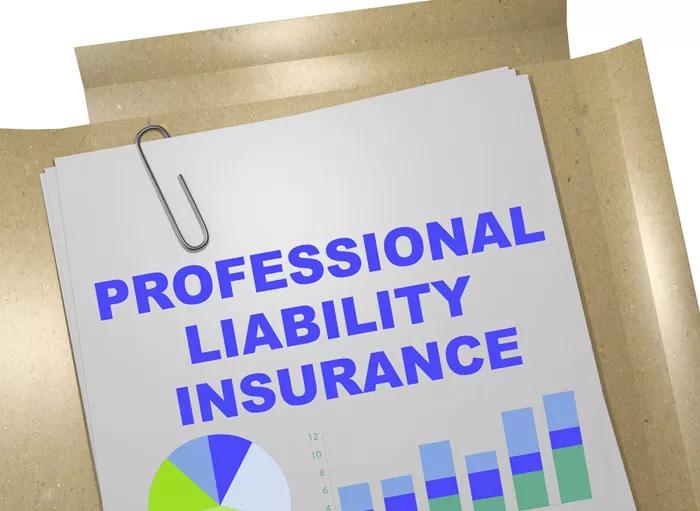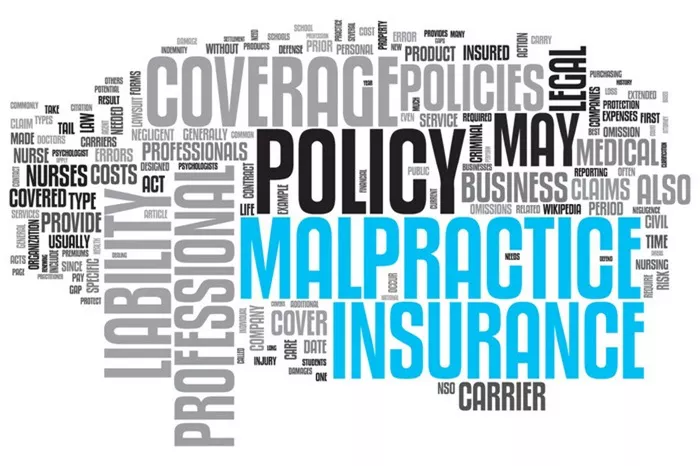In the realm of healthcare, where every decision carries profound consequences, the need for professional liability insurance becomes paramount. This essay aims to delineate the significance of professional liability insurance for healthcare professionals, distinguishing it from malpractice insurance, elucidating its coverage details, highlighting examples of risks and claims, emphasizing its role in legal and financial protection, discussing state requirements and facility policies, outlining steps to acquire insurance, and elucidating its impact on good practice and patient trust.
Definition of Professional Liability Insurance
Professional liability insurance, also known as errors and omissions insurance (E&O), is a specialized form of coverage designed to protect professionals from liability arising from their professional services. Unlike general liability insurance, which covers bodily injury and property damage, professional liability insurance focuses on claims related to professional negligence, errors, or omissions in the performance of professional duties. It provides coverage for legal defense costs, settlements, and judgments that may arise from lawsuits alleging malpractice or errors in service delivery.
Importance for Healthcare Professionals
Healthcare professionals operate in a high-stakes environment where even minor errors can have profound consequences for patients and practitioners alike. The nature of medical practice inherently involves a certain degree of risk, as healthcare decisions can impact patient outcomes in profound ways. Thus, healthcare professionals face an elevated risk of malpractice claims and lawsuits compared to many other professions.
Consider the complexity of medical procedures, the variability of patient conditions, and the inherent uncertainty in diagnosing and treating illnesses. Despite healthcare professionals’ best efforts, adverse outcomes may occur, leading to allegations of negligence or malpractice. Professional liability insurance serves as a crucial safety net in such situations, providing financial protection and legal support to healthcare professionals facing lawsuits or claims arising from alleged errors or omissions in patient care.
see also:Professional Liability Vs. General : What’s The Difference?
Coverage Details
Professional liability insurance typically covers a range of expenses incurred in defending against malpractice claims and lawsuits. These include:
Legal Defense Costs: Professional liability insurance covers the expenses associated with hiring legal counsel to defend against malpractice claims. This includes attorney fees, court costs, and other legal expenses incurred throughout the litigation process.
Settlements: In cases where it is deemed prudent to settle a malpractice claim out of court, professional liability insurance provides coverage for settlement amounts negotiated with the claimant.
Judgments: If a court rules against the healthcare professional in a malpractice lawsuit and awards damages to the plaintiff, professional liability insurance covers the costs of such judgments, up to the policy limits.
Examples of Risks and Claims
Healthcare professionals face a myriad of risks and potential claims, including but not limited to:
Negligence: Allegations of negligence may arise from a failure to adhere to the standard of care expected from a reasonably competent practitioner in similar circumstances.
Misdiagnoses: Diagnostic errors, including misinterpretation of test results or failure to recognize symptoms, can lead to delayed or incorrect treatment, resulting in harm to patients and potential malpractice claims.
Surgical Errors: Mistakes made during surgical procedures, such as wrong-site surgery, improper incisions, or post-operative complications, may give rise to malpractice lawsuits.
Medication Errors: Errors in prescribing, administering, or monitoring medications can have serious consequences for patient safety and may lead to malpractice claims alleging medication-related harm.
Legal and Financial Protection
Professional liability insurance provides healthcare professionals with essential legal and financial protection in the event of malpractice claims or lawsuits. Without adequate insurance coverage, healthcare professionals risk facing substantial financial losses, including legal fees, settlements, and damage awards, which can potentially jeopardize their financial security and professional reputation. Moreover, professional liability insurance helps mitigate the personal and professional stress associated with defending against malpractice allegations, allowing healthcare professionals to focus on delivering quality patient care without undue distraction or anxiety.
see also:How much does professional liability cost?
State Requirements and Facility Policies
While professional liability insurance is not universally mandated for healthcare professionals, many states and healthcare facilities require practitioners to carry adequate insurance coverage as a condition of licensure or employment. State regulations regarding insurance requirements for healthcare professionals vary, with some states imposing minimum coverage limits or specific coverage requirements. Additionally, healthcare facilities, including hospitals, clinics, and private practices, may establish their own insurance requirements for affiliated healthcare providers to mitigate institutional risk and ensure adequate protection against malpractice claims.
Steps to Acquire Insurance
Acquiring professional liability insurance involves several key steps, including:
Assessing Coverage Needs: Healthcare professionals should evaluate their practice area, scope of services, and individual risk profile to determine the appropriate level of insurance coverage needed to adequately protect against potential liabilities.
Researching Insurance Providers: Healthcare professionals should research and compare insurance providers specializing in professional liability coverage for healthcare professionals. Factors to consider include the insurer’s reputation, financial stability, coverage options, premium costs, and claims handling process.
Reviewing Policy Options: Healthcare professionals should carefully review policy terms, conditions, and coverage limits to ensure alignment with their specific needs and risk exposures. It is essential to understand what is covered, excluded, and any policy limitations or restrictions that may apply.
Obtaining Quotes: Healthcare professionals should obtain quotes from multiple insurance providers to compare coverage options and premium costs. Working with an independent insurance agent or broker specializing in healthcare liability insurance can help streamline the quote comparison process and facilitate informed decision-making.
Purchasing Coverage: Once a suitable insurance policy has been identified, healthcare professionals can proceed to purchase coverage by completing the application process and submitting any required documentation or underwriting information. Upon approval, the insurance policy becomes effective, providing the insured with ongoing protection against malpractice liabilities.
Good Practice and Patient Trust
Beyond the legal and financial benefits, professional liability insurance plays a pivotal role in fostering good practice and maintaining patient trust within the healthcare community. By carrying professional liability insurance, healthcare professionals demonstrate their commitment to accountability, transparency, and ethical conduct in the delivery of patient care. Patients are reassured knowing that their healthcare providers are adequately insured against potential liabilities, which can enhance confidence in the quality and safety of the healthcare services received. Moreover, professional liability insurance serves as a safeguard against reputational damage in the event of malpractice allegations, helping healthcare professionals preserve their professional standing and credibility within their respective fields.
Conclusion
In conclusion, professional liability insurance is an indispensable risk management tool for healthcare professionals, providing essential legal and financial protection against the inherent risks and uncertainties of medical practice. By safeguarding against potential malpractice claims and lawsuits, professional liability insurance enables healthcare professionals to focus on delivering quality patient care without the constant fear of financial ruin or professional repercussions. Moreover, professional liability insurance reinforces accountability, transparency, and trust within the healthcare community, ultimately benefiting both practitioners and patients alike. As such, healthcare professionals should prioritize obtaining adequate professional liability insurance coverage to mitigate risk, ensure compliance with regulatory requirements, and safeguard their professional reputation and livelihood.
FAQs about Liability Insurance
1. Why do I need professional indemnity insurance?
Professional indemnity insurance, often referred to as professional liability insurance, is crucial for professionals who provide services or advice to clients. It offers financial protection in case a client alleges that you made errors or omissions in your work, leading to financial losses or damages. Without this insurance, you could be personally liable for legal costs and compensation payments, which can be substantial and potentially devastating to your business or personal finances.
2. What is the difference between personal and professional liability insurance?
Personal liability insurance primarily covers claims related to bodily injury or property damage that you cause to others. This type of insurance is commonly included in homeowners or renters insurance policies and protects individuals from lawsuits arising from accidents on their property or actions that cause harm to others outside of professional settings.
On the other hand, professional liability insurance, also known as errors and omissions insurance, protects professionals against claims of negligence, errors, or omissions in their professional services or advice. It covers financial losses or damages that clients suffer as a result of these mistakes and is essential for professionals such as doctors, lawyers, architects, consultants, and other service providers.
3. Is professional liability the same as umbrella insurance?
No, professional liability insurance and umbrella insurance are not the same. Professional liability insurance specifically protects professionals from claims related to errors or negligence in their professional services or advice. It provides coverage for legal defense costs, settlements, or judgments resulting from such claims.
Umbrella insurance, on the other hand, is a broader form of liability insurance that provides additional coverage beyond the limits of other liability policies, such as homeowners insurance or auto insurance. It offers protection against claims that exceed the limits of those primary policies and can cover various types of liability risks, including personal injury, property damage, and certain lawsuits. Umbrella insurance does not specifically address professional liability claims.
4. Is management liability the same as professional liability?
No, management liability insurance and professional liability insurance are different types of coverage, although they both fall under the broader category of liability insurance.
Professional liability insurance, as mentioned earlier, protects professionals from claims arising from errors, omissions, or negligence in the provision of their professional services or advice.
Management liability insurance, on the other hand, is designed to protect directors, officers, and other executives of a company from claims alleging wrongful acts in the management or administration of the business. It typically covers risks such as employment practices liability, directors and officers (D&O) liability, fiduciary liability, and sometimes cyber liability. While management liability insurance may include coverage for certain professional liability risks, such as errors or omissions by executives in their professional capacities, it is not synonymous with professional liability insurance and addresses a broader range of management-related risks.
You Might Be Interested In




















